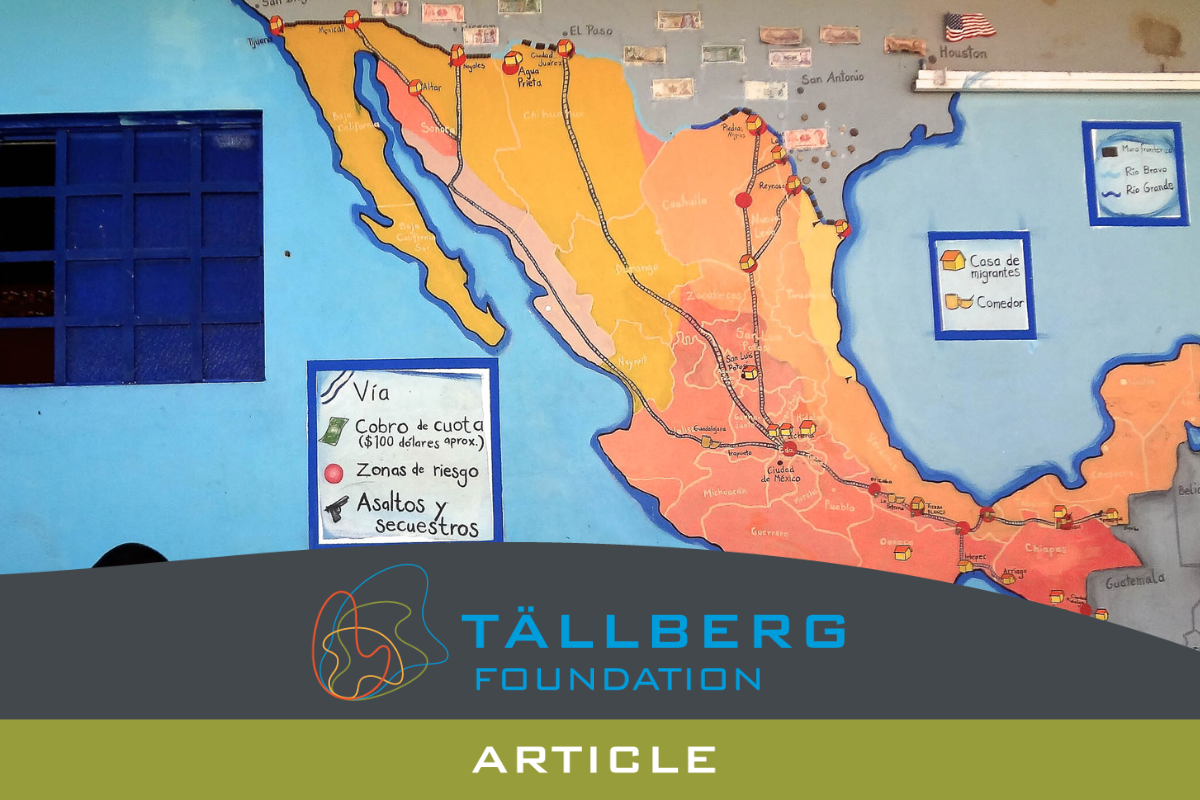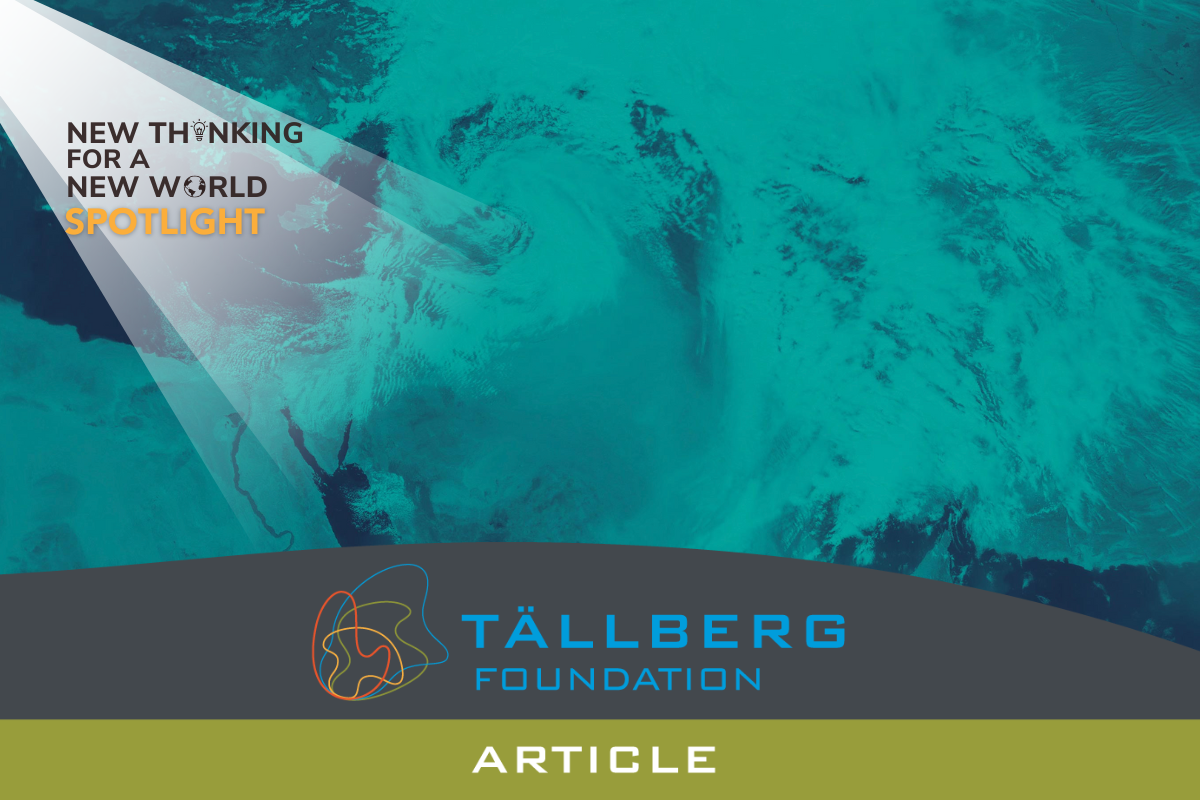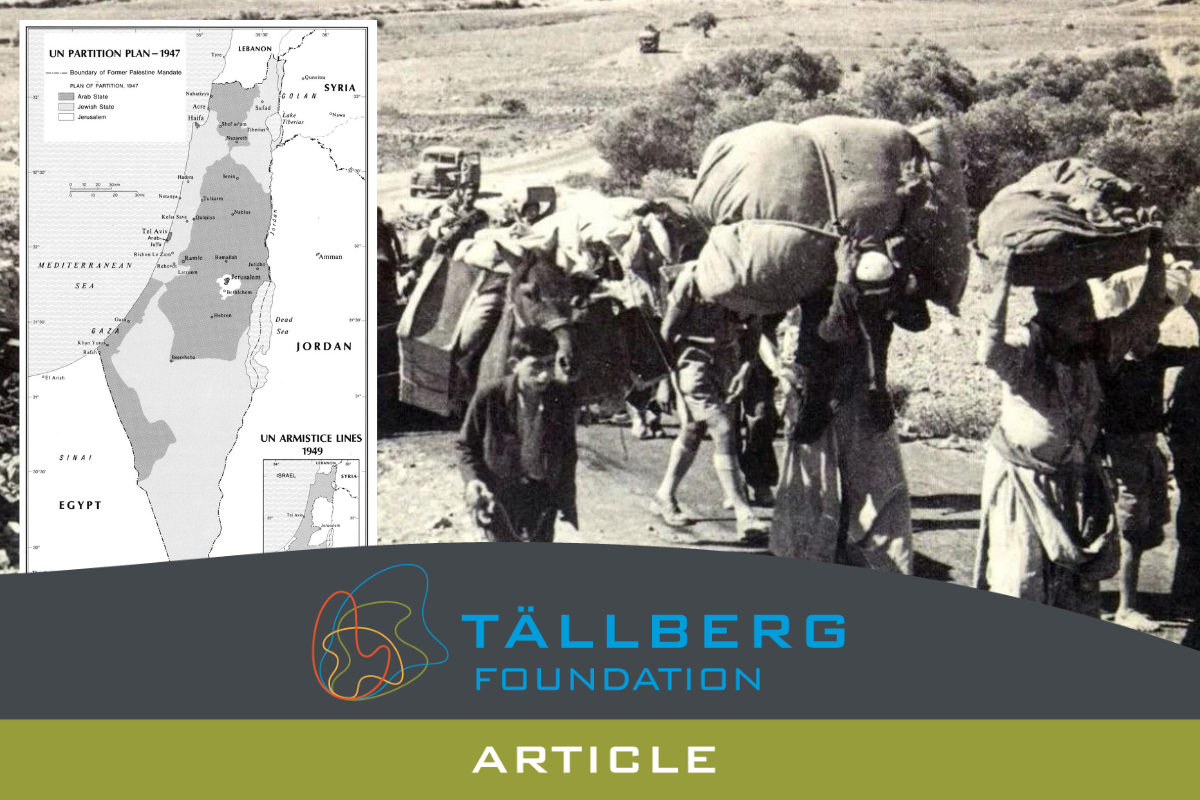Imagine walking 2,000 miles from Honduras to the southern U.S. border, risking robbery, assault, even murder. Why do so many take the risk? According to anthropologist Amelia Frank-Vitale, it’s because “in the United States people respect the rule of law.”
***
Imagine walking 2,000 miles from Honduras to the southern U.S. border, through some of the most unforgiving terrain in the Americas. Food, water and shelter are scarce, sometimes by government fiat. Along the way, you run the risk of being robbed, assaulted, even murdered; you are abused and solicited by soldiers in Guatemala, National Guard in Mexico, gangs and cartels in both countries as well as your own. There seems to be a silent conspiracy to make the trip as dangerous as possible, hoping that fear will deter you from attempting such a crazy journey in the first place.
But an almost endless river of people still take the risk. Why?
Amelia Frank-Vitale, an American anthropologist who has spent years living and working with migrants in Honduras and Mexico and recently joined host Alan Stoga on a New Thinking for a New World podcast, insists there is a simple answer. She relays what Hondurans tell her: “Because in the United States people respect the rule of law.” She says they want to live in such a place—and their lived experience tells them that is unlikely to ever be the case in their own country.
“People don’t necessarily want to leave their country. They don’t necessarily want to leave their communities…But they feel so atomized, unprotected, and unconnected…people live so close to the edge. They’re so close to being plunged into disaster that if one thing goes wrong—if someone loses a job, if someone in the family gets ill, if someone is murdered (a frequent occurrence in Honduras)—the only chance that people feel they have to survive is to try migrating.”
She insists that most of migration is not aspirational. “It is not for anyone an easy choice to make…They do not expect a path to wealth and prosperity. It is the last best option when something else goes wrong.”
Frank-Vitale has traveled with Honduran refugees as they flee the insecurity of their homes. “The trajectory to try to get to the United States is absolutely harrowing.” First, getting out of Honduras can be difficult, despite the supposed open borders with neighboring Guatemala. “Border guards often don’t respect the law and give people a hard time trying to leave Honduras…Then neighboring Guatemala can be tricky…getting across can require money and resources, and luck—a lot of luck.”
However, “Getting through Mexico has become a nightmare…increasingly treacherous,” she insists. “There has been such a campaign of terror against migrants in Mexico, by immigration officials as well as organized crime groups that control so much of the country. Migrants have been kidnapped for ransom in very large numbers, but also suffer terrible rates of sexual assault and forced labor at the hands of both Mexican officials and members of organized crime groups,” she says.
From Frank-Vitale’s perspective, little of this is random or accidental. She believes that the Mexican government has long collaborated with the United States in a strategy whose basic logic is to “cause more people to suffer and die [in order to] act as a deterrent, so that fewer people would try to migrate.” She argues that although the deterrent hasn’t worked, the logic continues—and so does the suffering and death.
Mexican President Andres Manuel Lopez Obrador came into office in 2018 committed to changing his country’s approach to migration, potentially offering work and humanitarian visas and promoting development aid to Central America to address root causes of migration. “But after about two months of that he changed tack completely,” returning to the aggressive policies of his predecessors. Why? “My analysis of this is that in constant negotiations with the United States, Mexico has only so many cards to play. And I think migration policy is one area where Lopez Obrador can offer something that the United States wants and in turn, get the United States to be less concerned with his domestic policies,” she says, citing economic, energy and resource policies that might otherwise be criticized by Washington. “I think for him, it’s a relatively easy trade off politically.”
That leaves the Central American refugees in a horrible place: they clearly fear for their lives if they stay in their own countries, but the passage north is incredibly dangerous. And, when (or if) they make it to the U.S. border, odds are they get pushed back into Mexico or all the way back to Honduras, and the process starts again. Frank-Vitale describes young Honduran men who “cycle through getting deported and then migrating again and getting detained and deported and migrating again. And the tragedy of this is that where they do find open arms is within the criminal organizations…who use them, chew them up and spit them out.”
Solutions are hard to find. “Hondurans need something to stay behind for if you really are trying to break this cycle,” in Frank-Vitale’s words. That would take money and patience, and consistent policy over at least a generation. “But I don’t see on the Honduran government’s part or the Mexican government’s part or the U.S. or international communities’ part, interest in the kind of investment that would structurally offer people the opportunity to stay at home. That’s what so many of the people I speak to really would like: they would like to stay home, but there’s just no chance for them.”
Adding insult to injury, Amelia Frank-Vitale reports that the current going rate for a coyote to guide a refugee to the United States is $18,000. Suffering is big business.
What do you think? Should the US open its borders? Leave your response in COMMENTS below.
***
Listen to the full conversation between Amelia Frank-Vitale and “New Thinking for a New World” host Alan Stoga here.
ABOUT AMELIA FRANK-VITALE
Dr. Amelia Frank-Vitale is currently a postdoctoral research associate and lecturer in the Program in Latin American Studies at Princeton University. She holds an MA and a PhD in Anthropology from the University of Michigan, an MA in Ethics, Peace, and Global Affairs from American University, and a BA in Anthropology from Yale University. An anthropologist of migration, deportation, and violence in Central America and Mexico, her work connects regional immigration and security policies, organized crime, state violence, and everyday survival strategies in the urban margins in Honduras.
She has been published in Geopolitics, the Journal of Latin American and Caribbean Anthropology, The Annals of Anthropological Practice, Trends in Organized Crime, EntreDiversidades, and Public Anthropologist. Her commentary has appeared in The Washington Post, Fortune Magazine, NACLA Report on the Americas, ContraCorriente, and The World Policy Journal. She is also the founder and co-editor of a new series from Columbia University’s Center for Mexico and Central America (CeMeCa) that seeks to make detailed knowledge from and about Central America more accessible to a variety of publics in the US, including asylum attorney.





0 Comments